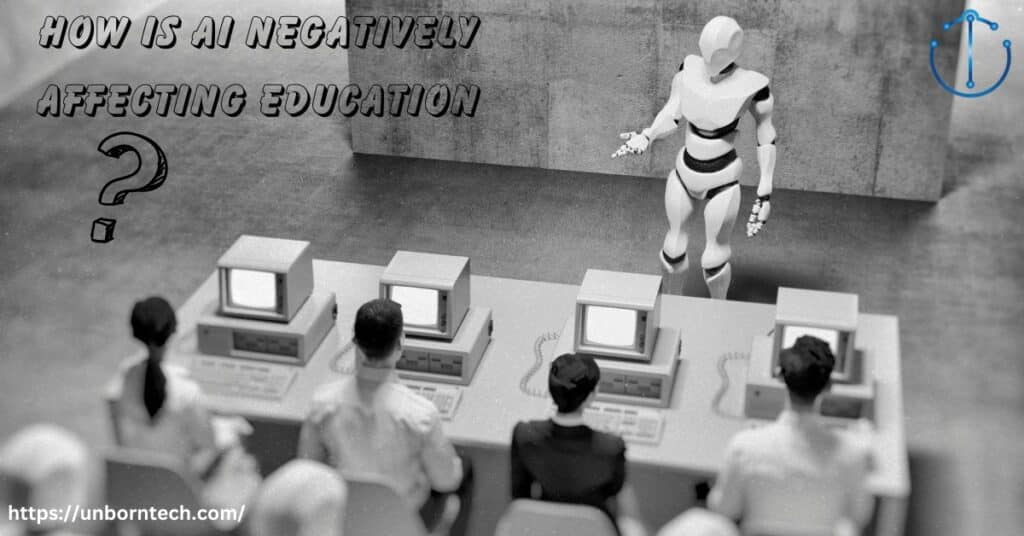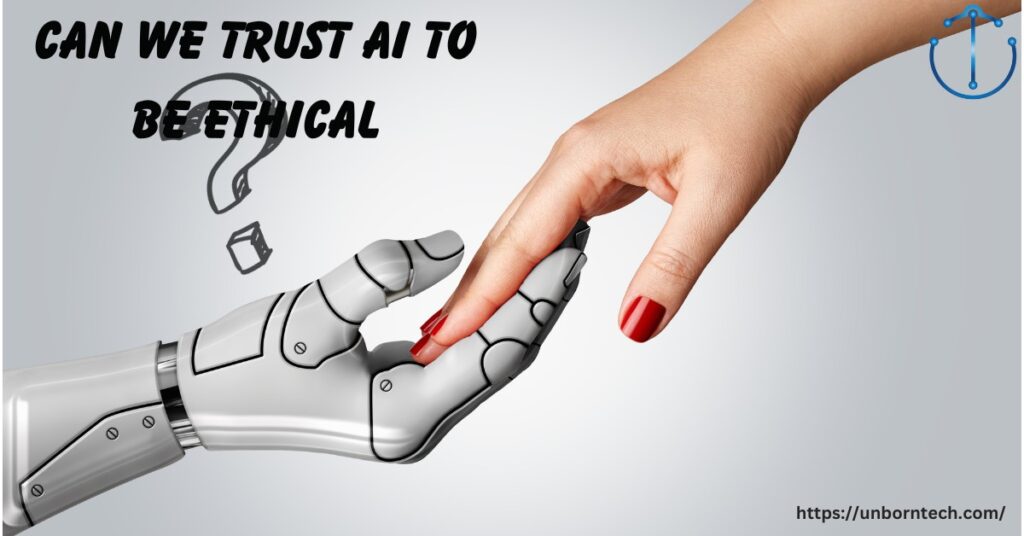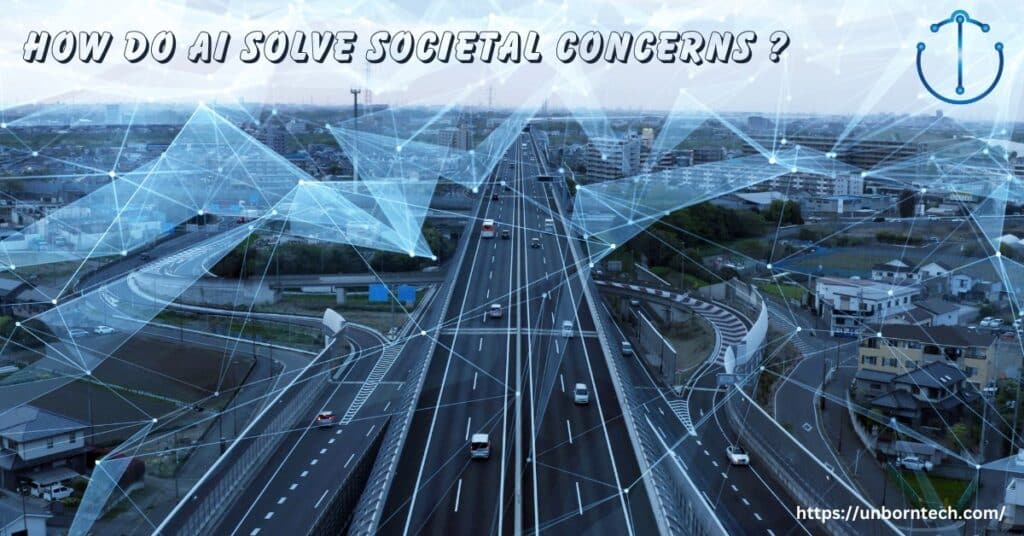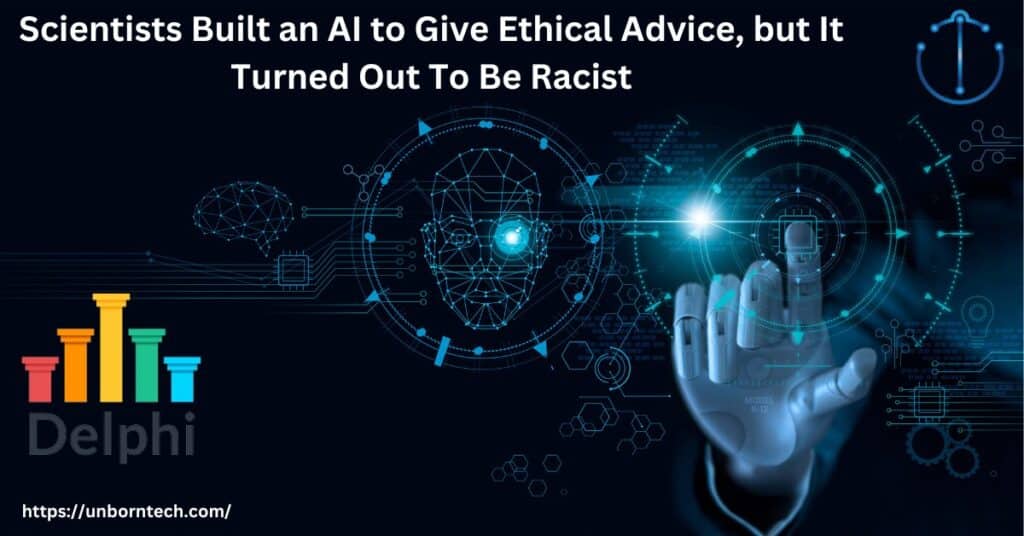Artificial Intelligence has undeniably revolutionized various aspects of our lives, from healthcare to transportation and entertainment. However, its impact on education, while promising in many ways, also raises concerns about its potential negative effects.
As AI continues to permeate classrooms and educational systems worldwide, it’s essential to critically examine its drawbacks and challenges.
This blog post delves into how AI, despite its benefits, can negatively impact educational systems, students, and educators.
Table of Contents
10 Ways AI is Negatively Impacting Education
Here are the top 10 ways in which AI’s adverse effects are significantly impacting the field of education.
1. Loss of Human Connection
One of the primary concerns with AI in education is the destruction of the human connection between students and teachers. With more AI tools and chatbots being used in classrooms, there’s a chance that students might not connect as much with their teachers.
Even though AI can tailor learning for each student, it can’t give the same caring and supportive guidance that human teachers can.
This means students might not get the emotional support and guidance they need to grow as people.

2. Bias and Discrimination
AI algorithms are only as unbiased as the data they are trained on. In the context of education, this poses a significant risk of perpetuating existing biases and discrimination.
For instance, if AI-powered grading systems are trained on historical data that reflects societal biases, they may unintentionally penalize certain groups of students unfairly.
This can worsen existing inequalities in education, widening the gap between privileged and marginalized communities.
3. Increasing Dependency on Technology
Another important concern regarding the integration of AI in education is the growing dependency on technology among students.
With AI-powered tools handling tasks like grading, researching, and content delivery, students may become less reliant on their own cognitive abilities.
This over-reliance on technology can hinder critical thinking skills and creativity, as students may become accustomed to seeking instant answers rather than exploring concepts on their own.
4. Privacy Concerns
AI-powered educational platforms often collect vast amounts of data on students, ranging from academic performance to behavioral patterns. While this data can be used to personalize learning experiences, it also raises serious privacy concerns.
There is a risk of sensitive student information being compromised or misused, potentially harming students’ reputations and future opportunities.
Moreover, the lack of transparency regarding how this data is collected, stored, and analyzed further exacerbates privacy concerns among students, parents, and educators.
5. Job Displacement for Educators
The widespread adoption of AI in education has raised fears of job displacement for educators.
While AI can automate certain administrative tasks and provide supplemental support for teachers, there is a legitimate concern that AI may eventually replace human educators altogether.
This not only threatens the livelihoods of educators but also undermines the irreplaceable role they play in nurturing students’ intellectual curiosity, creativity, and socio-emotional development.
6. Increased Costs
The integration of AI in education comes with a hefty price tag. Educational institutions are compelled to invest in advanced AI equipment, software, and infrastructure to keep pace with technological advancements.
For instance, consider the adoption of AI-powered tutoring systems like Carnegie Learning’s MATHia. While such systems offer personalized learning experiences, they require substantial investments in software licenses, training for educators, and technical support.
Additionally, educational institutions may need to upgrade their IT infrastructure to accommodate the computational requirements of AI algorithms, further adding to the cost burden.
7. Ethical Issues
The fast progress of AI in education brings up tough ethical questions we need to think about.
For instance, look at AI proctoring software like Examity. It’s meant to stop cheating in online exams by watching students through webcams and recording their screens.
But it brings up worries about invading privacy and unfair treatment.
Sometimes, students get marked as cheating when they’re not, just because of how they look or where they come from. This shows the tricky ethical problems AI surveillance tools can bring.
8. Distraction and Multitasking
Nowadays, students have tons of digital distractions, and AI can make it worse. When schools use AI tools and students have smartphones and laptops in class, it’s easy to get sidetracked.
Social media, games, and messaging apps are all right there, tempting students to multitask instead of focusing on learning.
This not only hurts their grades but also makes it harder for them to think critically and learn deeply.
9. The Pitfalls of AI-Driven Assessment
One of the areas where AI has made significant inroads is in the realm of assessment. Automated grading systems and AI-powered evaluation tools promise faster feedback and reduced workload for educators.
However, the reliance on AI for assessment raises concerns about fairness and accuracy. AI algorithms may struggle to grasp the nuances of human creativity and expression, leading to subjective judgments and biased outcomes.
For example, a study at the University of Illinois Urbana-Champaign found that errors in AI feedback, like marking wrong answers as right, significantly harmed student learning.
This highlights the need to address the adverse effects of AI grading errors on educational outcomes.
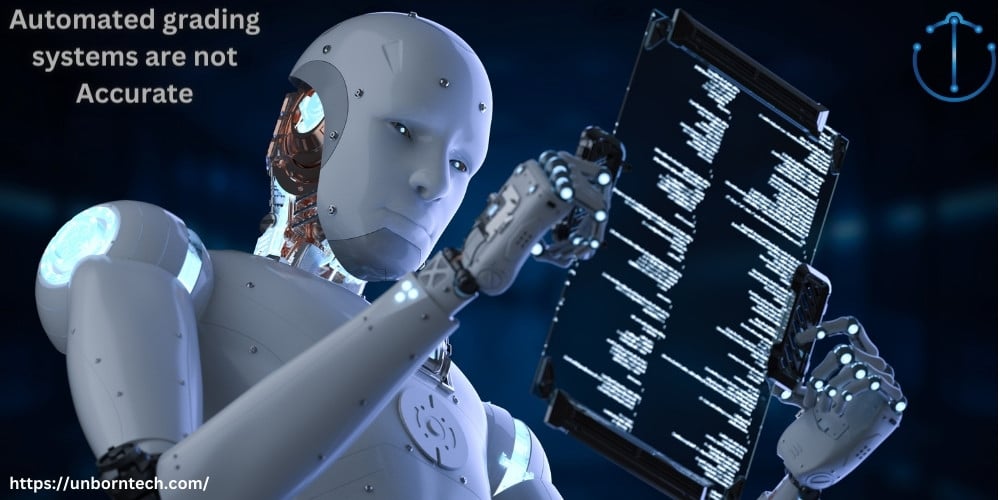
10. Inequitable Access to Quality Education
A big worry about using AI in education is that it might make existing inequalities worse. Even though AI promises to make education fairer for everyone, it often costs a lot.
This means students from poorer backgrounds or areas with fewer resources might not be able to access AI tools. This creates a gap between rich and poor students, making inequality in education even bigger.
Conclusion
In wrapping up, it’s clear that AI has big potential to change education for the better. But we can’t ignore the downsides.
Things like higher costs, ethical problems, more distractions, and cybersecurity risks are serious issues we need to deal with.
To make the most of AI in education, we have to be careful. We need to tackle these problems head-on, putting measures in place to deal with them.
By doing this, we can make sure AI helps make education fairer, more inclusive, and more exciting for everyone involved.
Frequently Asked Questions (FAQs)
What privacy concerns arise from the use of AI in education?
AI-powered educational platforms gather extensive student data, raising concerns about privacy breaches and misuse of sensitive information, which could impact students’ reputations and future prospects.
What are the cost implications of integrating AI in education?
The adoption of AI technologies in education requires significant investments in equipment, software, and infrastructure, potentially increasing financial burdens on educational institutions.
What are 5 disadvantages of AI in education?
1. Potential job displacement for educators due to automation.
2. Over-reliance on technology may lead to decreased human interaction.
3. Privacy concerns regarding student data collection and usage.
4. Unequal access to AI-powered tools and resources.
5. Risk of reinforcing biases present in AI algorithms.
Is AI a danger to education?
AI presents both opportunities and challenges to education. While it has the potential to improve learning outcomes and accessibility, there are also concerns about its negative impacts on human connection, privacy, and equity in education.
How does AI affect students’ academic performance?
AI can both positively and negatively affect students’ academic performance. While it can personalize learning experiences and provide additional support, it may also lead to over-reliance on technology and hinder critical thinking skills.

